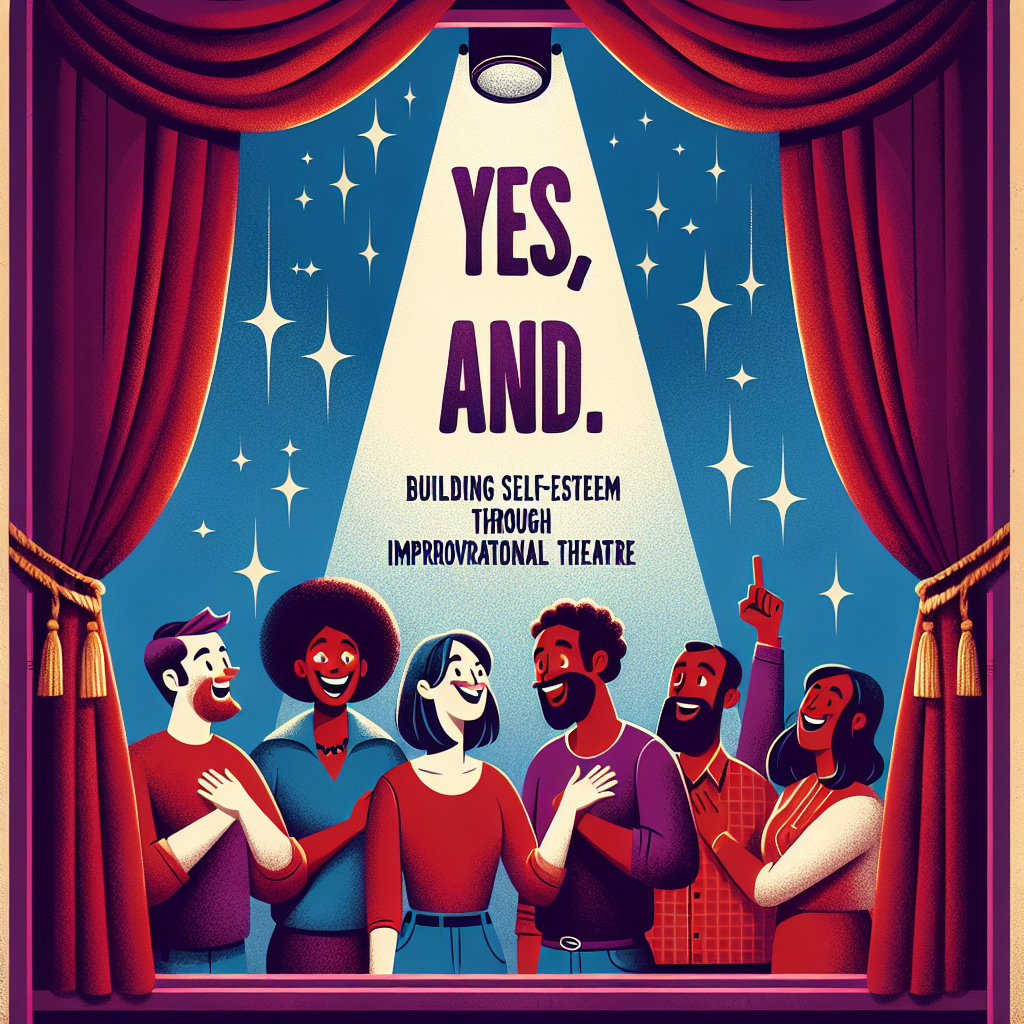Yes, And: Building Self-Esteem through Improvisational Theatre
In a world where self-confidence is increasingly recognized as a crucial ingredient for personal and professional success, unique and engaging methods to cultivate it are continually emerging. One such method gaining recognition is improvisational theatre. Improv, as it is often called, is not only a form of theatrical expression but also a valuable tool for personal development, particularly in building self-esteem.
The Core Principle: Yes, And
At the heart of improvisational theatre lies the principle of "Yes, And." This foundational rule requires participants to accept what their fellow actors propose ("Yes") and then build upon it ("And"). This philosophy fosters a sense of acceptance, collaboration, and creativity. Immediately, participants learn that there are no wrong answers, only opportunities for growth and exploration. This mindset can lead to significant improvements in self-esteem as individuals feel valued for their contributions and free from the fear of judgment.
Creating a Safe and Supportive Environment
One of the key benefits of improv is the creation of a safe and supportive environment. Traditional theater often involves scripts, directors, and an audience, which can be intimidating for many. In contrast, improv encourages risk-taking and experimentation without the pressure of a perfect performance. This environment cultivates trust among participants, allowing them to step out of their comfort zones without fear. This trust is crucial in helping individuals recognize their unique strengths and abilities.
Embracing Mistakes as Growth Opportunities
Another major aspect of improv is the emphasis on embracing mistakes. In daily life, people often fear making mistakes, worrying about how they will be perceived by others. Improvisational theatre flips this perspective by treating mistakes as gifts. Every ‘mistake’ becomes a launchpad for new ideas, teaching participants that failure is not something to be feared, but rather a natural and valuable part of the learning process. This approach encourages a resilient mindset and helps individuals develop a healthier relationship with failure, boosting their confidence in handling challenges both on and off stage.
Enhancing Communication Skills
Improv requires active listening, quick thinking, and effective communication—skills integral to personal and professional interactions. By participating in improv activities, individuals practice articulating their thoughts clearly and responding to others constructively. This can lead to improved communication skills, which are directly linked to heightened self-esteem. When individuals feel understood and capable of expressing themselves, their confidence naturally increases.
Promoting Authenticity and Self-Expression
Improvisational theatre celebrates individuality and encourages participants to express their authentic selves. This self-expression is vital for self-esteem, as it allows individuals to convey their true thoughts and feelings. In improv, there is no ‘correct’ way to portray a character or scenario; there is only your way. This freedom can be incredibly empowering, making participants more comfortable with their identities and boosting their self-esteem.
The Ripple Effect Beyond the Stage
The benefits of improv extend far beyond the theatrical stage. Participants often report greater self-confidence in everyday situations, from social interactions to professional settings. The adaptability and resilience developed through improv can lead to increased job performance, better relationships, and improved mental health.
Getting Involved
For those interested in exploring improv, many communities offer classes and workshops for all age groups and experience levels. These programs are designed not only to teach the basics of improvisation but also to foster personal growth and development. Whether you’re looking to enhance your self-esteem, improve your public speaking skills, or simply have fun, improv can be a wonderful and transformative journey.
In conclusion, improvisational theatre offers a unique and effective means of building self-esteem. By embracing the "Yes, And" philosophy, individuals can overcome their fears, embrace their mistakes, and express their authentic selves, all while enjoying the process. As more people discover the power of improv, its potential to transform lives becomes increasingly evident, proving that sometimes the best way to find yourself is simply to play.
